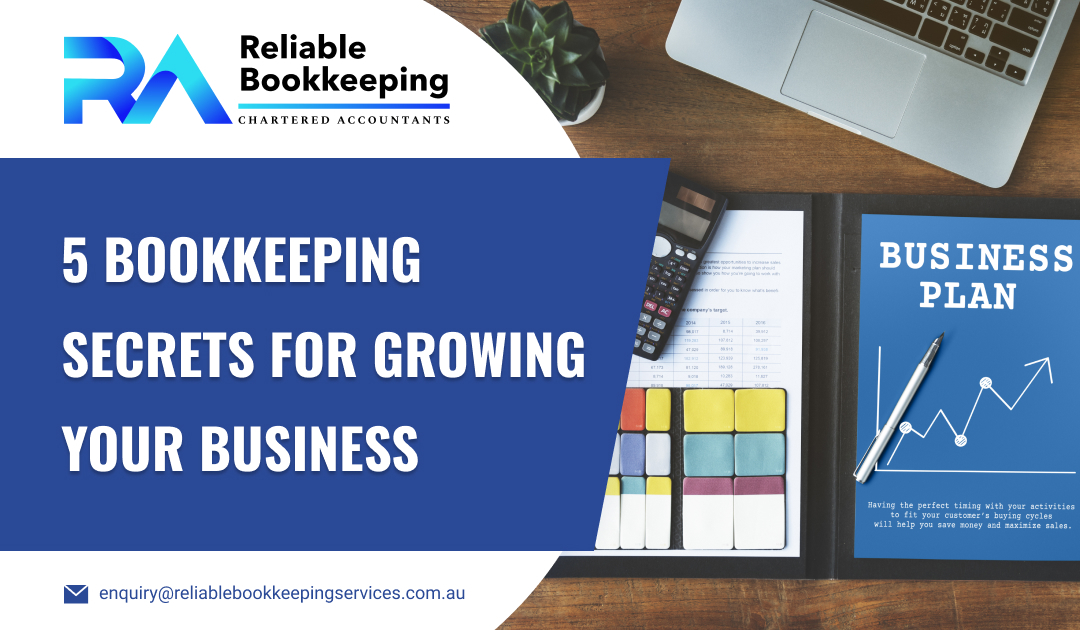A business depends on its financial structure. Success needs management of business finances, accurate business strategy, and expert analysis. Most people know this process is related to accounting and bookkeeping for small businesses. Bookkeeping is the foundation of accounting, so it must be accurate. In today’s blog, we’ll discuss a few secrets of bookkeeping that every business owner must know.
5 Bookkeeping Basics You Must Know for Business Growth
Let’s start with the meaning of bookkeeping. Bookkeeping encompasses everything related to how you record and manage all information relating to your business finances, such as financial transactions, bank statements, tax forms, etc.
1. Must Know About Debits and Credits
To keep your business books organised, you must know about two terms: debit and credit. These terms usually appear on bank records. Any preconceived related to these terms are often specified in relation to credit cards and accounts and should be forgotten. When managing books, you need to adhere to some important principles about credits and debits on financial statements. Expenses, dividends, and assets need to be increased with debits and liabilities, and equity and revenue must rise with credits.
2. Journal and Ledger Basics
Your business will need an accurate picture of all transactions to help you achieve success. This is the reason you will need a system to manage every receipt, invoice, bill, and payment. When keeping track of your business’s dealings, you need a journal. Basically, it creates a chronological list of all financial events that your company encounters.
3. Financial Reports Preparation
After organising your business books, you need to understand what they mean. Summarising the flow of the cash will create a picture of your company’s financial situation. Here are some most common financial reports your bookkeeper can help you create:
- Profit & loss statement
It is also called an income statement. It helps break down business revenue, expenses, and costs over a period of time.
- Cash flow statement
It shows you where your business is making money and spending money. Generally, you can track the cash flow of your company using a cash flow statement.
- Balance sheet
It summarises your business’s liabilities, assets, and equity in a single period of time. Your total assets must be equivalent to the sum of all liabilities and equity accounts. The balance sheet helps you know the financial status of your company.
4. Reconcile Bank Accounts
All business records need to be recorded accurately and reconciled on time. If you have a professional bookkeeper, then a bookkeeper can better play this role. They can enter credit card purchases and any petty cash into your accounting system. In addition to this, they can also monitor spending patterns and spot any possible excess expenses. Therefore, you can hire a bookkeeper to perform bank reconciliation for your business.
5. Payroll Expenses
It is one of the most important parts of business expenses and consists of the paid amount by the company to its employees for their services. It also includes other expenses associated with workforce management, such as employee benefits, payroll taxes, etc. Basically, it is the cash paid by the company to its employees in the form of salaries and wages. Businesses need to maintain this account very carefully to ensure tax payments are stress-free.
What does a Bookkeeper do for a Business?
Usually, bookkeepers are responsible for keeping accurate details of financial records of your business and can help you maintain business accounts that are important when making decisions for your company. Furthermore, bookkeepers can help you analyse the records of your business, help you make a business plan, and suggest different ways to boost your business’s savings for more growth. Well-maintained records help you run your business effectively as you track all your business transactions from:
- cash
- inventories
- earnings
- accounts payable
- payroll expenses
- loans payable
With a clear picture of the financial status of your company, you can reduce the risk of penalties and fines from the ATO that can affect your tax, superannuation, and other financial obligations.
Conclusion
If you want to keep your business well-organised, make sure to have maintained business records. To achieve this, you can seek help from a Reliable Bookkeeping Services provider.

